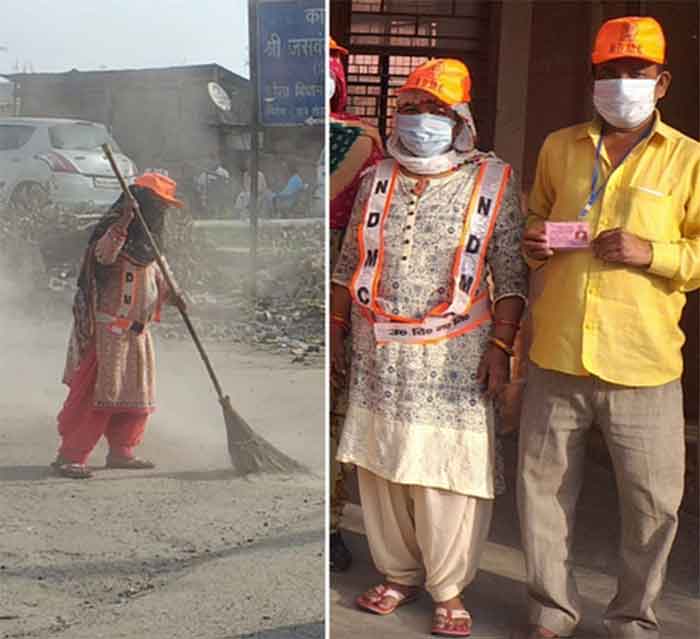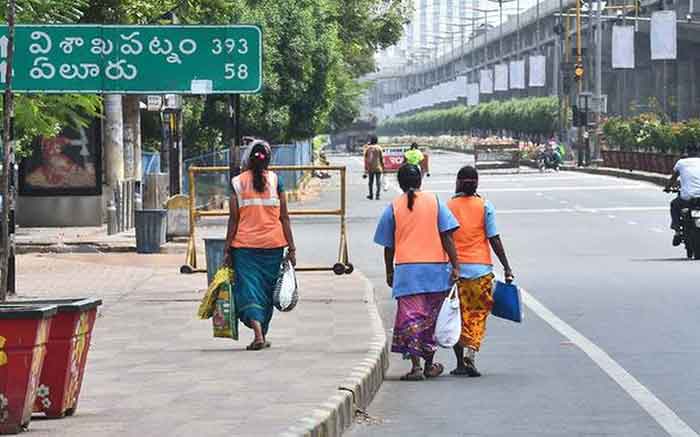
Our generation is facing a pandemic for the first time, though we have heard about different epidemics in the recent past be it Ebola outburst in African countries, attacks of Zika virus, and the memory of H1N1 flu is still bright. But the disease Covid-19 caused by SARS COV-2 is unique in many ways, it is less lethal than the above-mentioned disease, but it is much more virulent. This unique feature of this disease forces countries across the world to stop activities – legal, political, social, etc. We are facing a worldwide lockdown of a big scale for the first time. This lockdown has changed the social and political spheres, there are a lot of people on the social media platform instead of streets, the political debates, agitation, protests everything is happening virtually on the social media. It seems that we are living a dystopian dream; it is a kind living in the virtual reality as shown in Black Mirror. These sudden changes bring a different currency for sociological thinking; our ideas of culture and identity are, in some sense, affected by this home confinement, our ideas of cities and spaces have changed. But I believe that the underlying disruptions of our social order are still prevalent, and they are not just prevalent they have found new means to exercise the social-political power to maintain the hierarchy.
While most of us feel confined to the luxuries of our homes, we forget the basic help and necessities facilitated by the people who are making this lockdown possible and are fighting the evil by exposing themselves to the risk. My parents are sanitary workers employed under North MCD. While I, a student sit inside my home worrying when and how to submit my assignments, my parents are out in the field working for the society. They have been provided with very minimal safety gears and under current circumstances, lack of safety gears manifolds the risk that their job requires. Even then, whenever they return home, they return with a smile to spend some time with their family and support me and my siblings with our studies. They do their best to not let their job affect our health and our studies in any way. If this is not the time, when the society realizes their worth and stop stigmatizing their profession, I don’t know when it will. Furthermore, we see that the Government of India finds a different connotation for sanitary workers, safai yodha (or sanitary warriers), I think this government has an obsession with catchy terminology and providing new labels to old problems, like filling on old wine in the new bottle, but these new labels are not going to resolve the problems hidden under those labels. No one sees sanitary workers as frontline workers at the beginning of the pandemic and government also not considered them as health workers. Nowadays, this is hard for people to consider sanitary workers as frontline workers because of the identity which is associated with their work. This is the same thing, i.e. the stigma which is travelling from the past and it is not different in the contemporary situation.
Now, I can say that as a student with access to social media, internet and online studies this lockdown has provided me with a different space where I see a a reshuffling of my identity as I see myself limited to my student life aided by technology, but despite this, I am still empathetic to and I can feel the stigma associated with my parents’ jobs. This lockdown has shown has the roots of caste and caste-based discrimination, and the stigma associated with different works, gender, belief is so deeply rooted in our society that even a pandemic imposed lockdown is not enough to uproot that.
Our lives have been interrupted by the pandemic. It’s widespread and it has frozen us not only in our houses but in our caste, class, gender, stereotypes. This pandemic has shown the real nature of gender, caste and class discrimination, the migrant labourers are on the roads, the hunger rate has increased they are not able to get two meals in a day, we are seeing worst of class, caste and gender-based discrimination. Like domestic responsibilities for women have been increased due to lockdown. This is likely because the household women have historically carried the responsibility in a disproportional manner. The society and family also want women to always remain productive. Society demarcates certain boundaries for women to time pass. Factors such as double shift for working women, the absence of house-help assistance and growing need for cooking, cleaning, care and hygiene are further rising and tipping our current flawed domestic work balance. My mother is one of those who bear the brunt of the pandemic on their calloused feet and strong hands. My brothers and I used to go out for college respectively are at home most of the time, which also creates a demanding situation for my mother to maintain peace and love in our family.
It seems that this pandemic is exposing the already flawed social and political system of our country. There is no epiphany is going to happen that brings the changes we always wanted to see. Instead, this lockdown has provided people with different and creative means to enjoy power and hierarchy. This pandemic and lockdown is exposing the flaws of our systems, discrimination, and the foreplay of capitalism, though this lockdown has provided us with different cultural landscapes, and new vision to reimagining our identity, but these new landscapes and vision are based on the same old social-political sphere, which means If there are new cultural landscapes are emerging due to this lockdown, then there is a possibility that this will bring the old social problems in a new manner. This is high time to inquire about the sociological merits of culture and identity in this time of pandemic and lockdown.
My name is Jaisika. I am a sophomore in sociology at the School of Undergraduate Studies, Ambedkar University Delh. I am working on transforming nature of caste and social identities in rural Delhi. I am also interested in the critiques of modernity and south Asian epistemologies.
SIGN UP FOR COUNTERCURRENTS DAILY NEWS LETTER











































